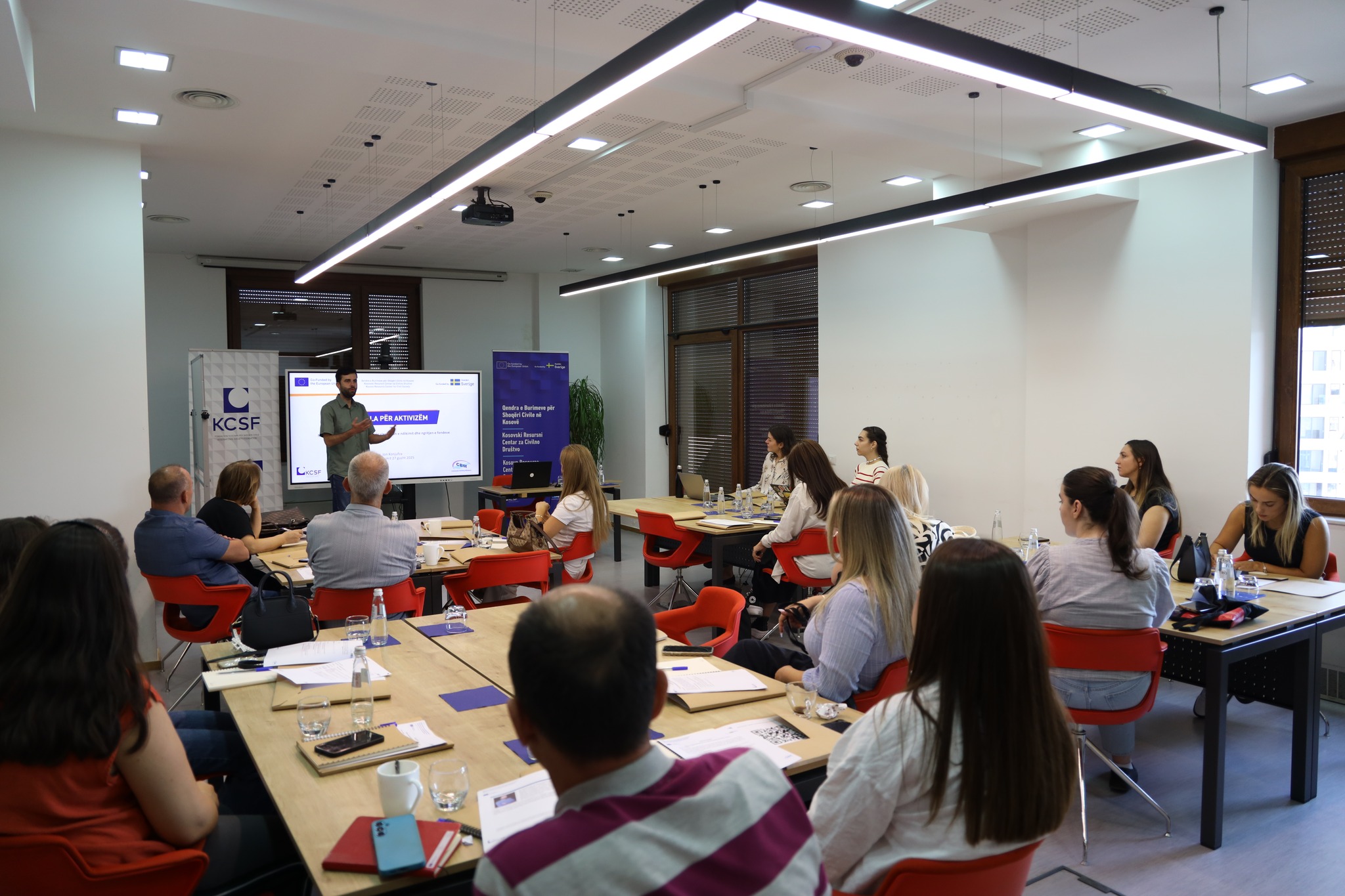𝐇𝐨𝐰 𝐝𝐨 𝐰𝐞 𝐦𝐞𝐚𝐬𝐮𝐫𝐞 𝐭𝐡𝐞 𝐢𝐦𝐩𝐚𝐜𝐭 𝐨𝐟 𝐨𝐮𝐫 𝐰𝐨𝐫𝐤? 𝐇𝐨𝐰 𝐝𝐨 𝐰𝐞 𝐬𝐡𝐨𝐰 𝐭𝐡𝐚𝐭 𝐰𝐡𝐚𝐭 𝐰𝐞 𝐝𝐨 𝐛𝐫𝐢𝐧𝐠𝐬 𝐜𝐡𝐚𝐧𝐠𝐞?
These are essential questions for every organization committed to the common good.
This is precisely the aim of the 3rd module of the School of Activism: Systems and Processes for Impact Assessment and Fundraising.
This module helps civil society organizations connect their daily work with their long-term mission and find practical ways to attract funds for initiatives that bring change.
During the two days of the school, around 20 participants in this module had the opportunity to learn how to:
- identify problems that need solutions and translate them into concrete objectives;
- develop a theory of change and indicators at both project and program level;
- understand how to use monitoring and evaluation data to increase credibility with donors;
- become familiar with different fundraising options.
The lecturer of this module was Jon Konjufca, an expert in monitoring, evaluation, and data analysis, who guided participants through this systematic capacity-building process.
This activity was organized with the financial support of the European Union and Sweden. Its content is the sole responsibility of the Kosovar Civil Society Foundation (KCSF) and Community Building Mitrovica (CBM) and does not necessarily reflect the views of the European Union or Sweden.
